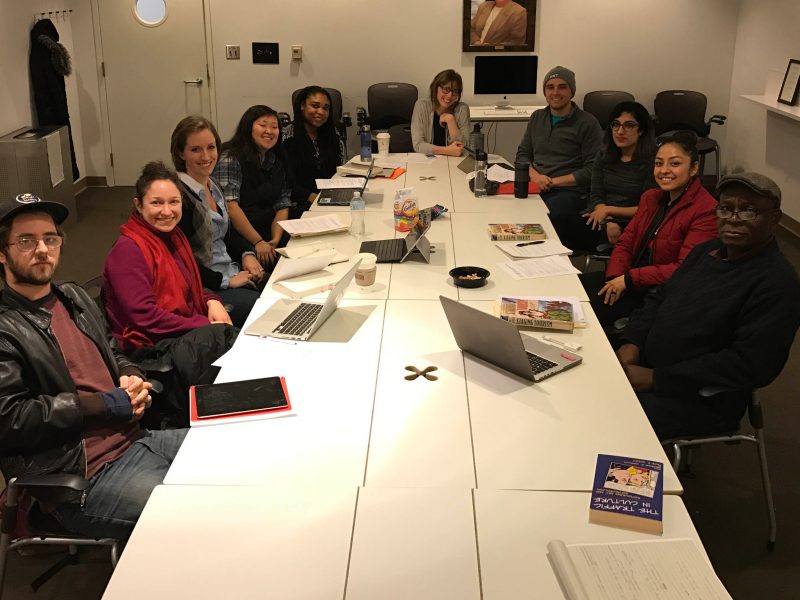Proposal funded! "Local Hawaiian Counterstories" is funded by the University of Michigan Center for World Performance Studies!
Congratulations to the CWPS Graduate Fellows:
- Kiran Bhumber, MA Program in Media Arts: Development of “ The Electronic Shawl” (Kolkatta and Mumbai, India)
- AJ Covey, MM Program in Percussion Performance, MM Program in Chamber Music: Musical Pedagogy of Non-Western Cultures (India and Bali)
- Laura-Ann Jacobs, PhD Program in Educational Studies: Local Hawaiian Counterstories (Hawaii, US)
- Ruby MacDougall, PhD Program in Asian Languages & Culture: How Identity and Culture are Embodied/Resisted through Corporeal Performance of Ethnic Minority Dance Forms in China (Yunnan, China)
- Ellen Myers, MA Program in Southeast Asian Studies: New and Imagined Spaces of Freedom or Confinement for Young Indonesians in Facebook, (Central Java, Indonesia)
- Sydney Schiff, MFA Program in Dance: International Influences on Zouk Dance Movement and Culture (Toronto, Paris, Amsterdam, Rotterdam, Warsaw, Katowice, London)
- Adam Shead, MM Program in Improvisation: Improvised Music: Narrative, Culture, and Performance (Amsterdam)
- Fabiola Torralba, MFA Program in Dance: Queering Liminality: Migration, Space and the Decolonial Imaginary (Mexico)
- Alyssa Wells, PhD Program in Musicology: Adaptations of American Drum Corps Rehearsal and Performance Practices (Japan and Netherlands)
Project Introduction
In her work Staging tourism: Bodies on display from Waikiki to Sea World, Jane Desmond (1999) explores Hawaii as a “destination image” (p. 12); a place with an exotic and iconic image perpetuated through commodification and mass media (mis)representation. She juxtaposes two seemingly similar but distinctly different terms: Native Hawaiian and Hawaiian native. The former refers to “those of indigenous ancestry” and the latter refers to “the Euro-American imagery about the indigenous islanders” (p. 5). According to Desmond, this exoticised and commodified destination image of Hawaiian native culture eclipses authentic indigenous Native Hawaiian identity in the Hawaii tourism industry. Because of this eclipsing and commodified destination image, Hawaiian culture appears to Euro-American tourists as unchanged by modernity and exists for tourists as primitive paradise and a place of escape. Despite what tourists may perceive, Hawaii has changed. And despite the power of this destination image, Hawaii will continue to change.
Desmond’s (1999) two categories of Native Hawaiian and Hawaiian native culture help to distinguish between an indigenous ethnic identity and how that ethnic identity may be essentialized and performed for outsiders. However, Desmond’s two categories do not necessarily capture the diversity of cultural experience in Hawaii today. In this project, I will consider an additional identity: local Hawaiian. By this term I mean individuals who live permanently in Hawaii but who may or may not identify as Native Hawaiian. This term reflects a cultural identity rather than a racial or ethnic identity.
Through this project I hope to better understand what it means to be local Hawaiian in 2017. I am interested in learning how local Hawaiians perform their local Hawaiian identities, and I plan to investigate how these performances of local Hawaiian identity counter, challenge, and disrupt the destination image of Hawaiian native culture.
Research Question: How is local Hawaiian identity performed through counter-stories?
What do local Hawaiians consider to be characteristics of local Hawaiian identity?
What (mis)representation of local Hawaiian identity is being countered?
How do local Hawaiians use different forms of representation to perform their counter-stories?


